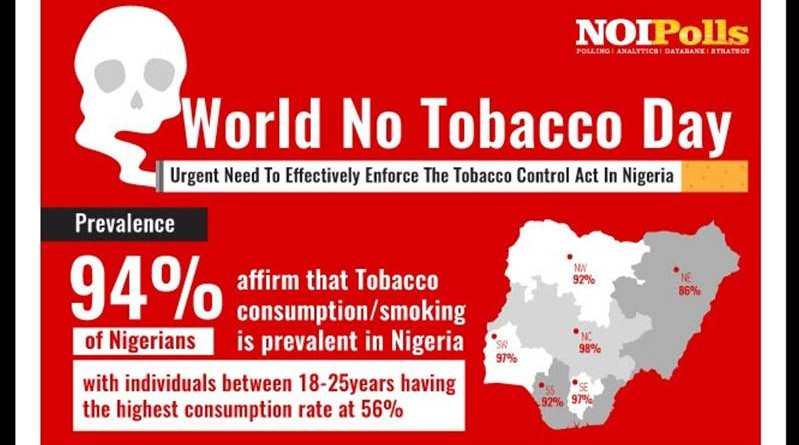World No Tobacco Day: Tobacco Interference Tactics Targeting The Youths
This year’s focus of World No Tobacco Day is on a crucial matter: the exploitation of social media and influencer marketing by the tobacco industry to target minors. Despite attempts to restrict traditional media advertising, these new digital platforms often remain unregulated, creating legal loopholes that the tobacco industry can take advantage of. Therefore, it is crucial that we address these gaps in order to protect our children from such harmful influences.

The use of tobacco continues to have detrimental effects on individuals and communities. Each year, over seven million people die directly from tobacco use, and an additional 1.2 million non-smokers lose their lives due to exposure to secondhand smoke.
Despite efforts to raise public awareness and the adoption of the Framework Convention on Tobacco Control by more than 179 countries, tobacco use is increasing in low- and middle-income countries, particularly in southern, western, and eastern Africa. Unless significant tobacco control measures are implemented and effectively enforced, tobacco use could double in the African continent within the next ten years.
Regrettably, there is currently no centralized resource that provides comprehensive tobacco data for governments to make informed policy decisions. The Tobacco Control Data Initiative (TCDI) is actively working to bridge this gap in several countries by developing websites for the Democratic Republic of the Congo, Ethiopia, Kenya, Nigeria, South Africa, and Zambia. These websites integrate primary and secondary research to present comprehensive data on tobacco use.
Getting Timely, Relevant, and Trusted Data to Policymakers
In partnership with the University of Cape Town’s Research Unit on the Economics of Excisable Products (REEP) and with support from the Bill & Melinda Gates Foundation, this 3.5-year program works to address barriers to data use in tobacco control by consolidating available and trusted tobacco control data, identifying and filling data gaps, and creating an online resource for comprehensive tobacco-related data and information.
After initial desk research, TCDI completed country assessments in our target countries interviewing more than 100 stakeholders on tobacco use and control data needs. After each assessment, TCDI synthesized findings, identified key data gaps, shared the findings with key stakeholders, and conducted workshops in each country to validate the findings and agree on which primary data gaps the team would prioritize.
The TCDI websites for DRC, Kenya, Ethiopia, Nigeria, South Africa, and Zambia have been publicly launched. TCDI has also conducted additional primary research to fill data gaps identified early in the process, including research on shisha in Nigeria and e-cigarette research in South Africa.
Going forward, the team will continue to incorporate new features and new research into the country websites. Beginning in November 2023, the TCDI program will transition the maintenance and updating of the TCDI sites to a long-term sustainability partner, while DG continues to administer the back-end. This arrangement will ensure continuity and updated information for the sites and continue through at least November 2027.




